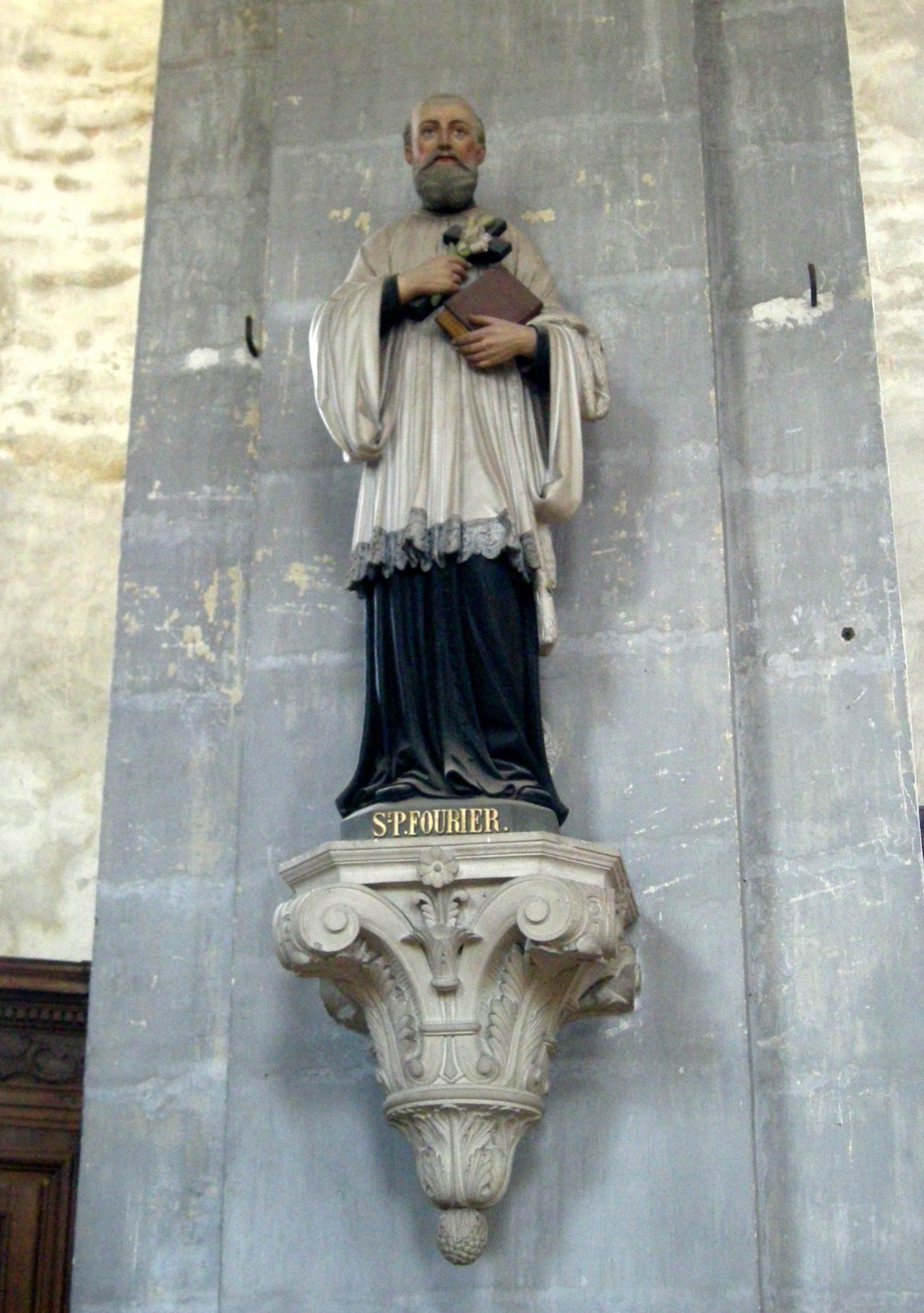One of the lesser known saints on the Roman Catholic calendar has his feast today: Peter Fourier.
Fourier did not hold a high episcopal office, nor was he a prolific writer; he attracted my attention in the list of events, births, and deaths for December 9 because he promoted education.
He was born in 1565 in a little village in Lorraine, France. His father, who was a prosperous cloth merchant, sent Peter to the University of Lorraine, where he was trained in scholastic theology. It was claimed by at least one of his students in an early biography* that he could recite the Summa Theolgica by heart, and his dedication and perception won him the respect of both the university masters and the local bishop. After his university studies, he took up life as a canon at the Abbey of Chaumousey for two years, then accepted assignment to a small parish where he labored to teach his flock not only to understand their faith, but to live according to its precepts.
Fourier decided to employ a new kind of preaching style. Instead of lecturing his flock, he led them in small group dialogues, and had them employ dialectics in a form of debates on Sundays to help them understand the different points of view and learn how to think about their own moral choices. His methods were so successful that he was asked to visit other parishes and instruct both clergy and layfolk. His efforts led to changes in how laymen, monks, and clergy were educated not just in Lorraine, but throuighout France.
By popularizing dialogues and dialectic discussions, Fourier revived the methods of teaching and inquiry that allow classical education, especially in seminar discussions, to go beyond simple recitation of facts or principles. Engaged in thinking for themselves and learning to see connections between what they learned and how they lived, his students developed a passion for learning and the ability to look beyond simplistic explanations and find guidance for dealing with complex situations.

